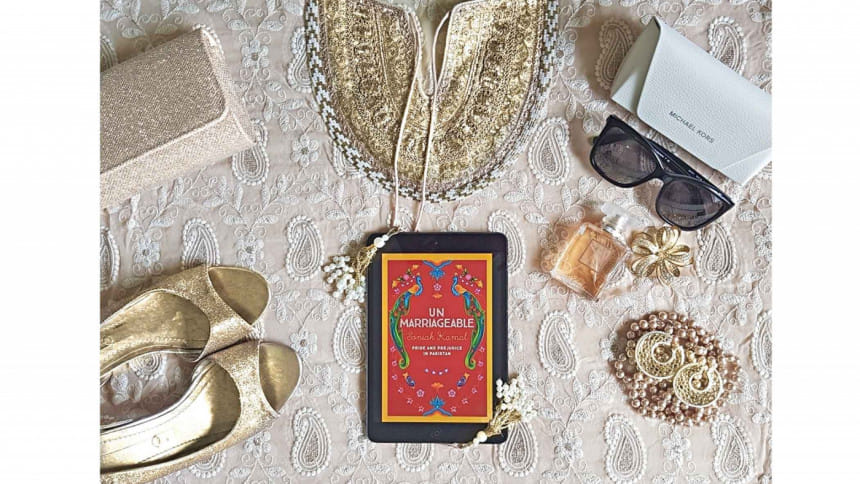The Hypocrisy of Marriage in South Asia

It is a truth universally acknowledged by her many fans that Jane Austen's sharp wit, complex characters, subtle social reproach, and tantalising storytelling are almost unparalleled. As a great fan of Austen myself, I was skeptical when I picked up Unmarriageable (Ballantine Books, 2019), Soniah Kamal's South Asian retelling of Austen's Pride and Prejudice. To my greatest delight, this book turned out to be a bold study of the many hypocrisies of modern day South Asian societies: the superficial marriage system which reduces a woman to a baby-making entity and a man to the digits on his pay check, the careful hand picking of religious and cultural practices to serve patriarchal norms, the omnipresent nepotism and classism, and the push for women's empowerment while also demanding traditional servitude and obedience from them. Kamal's storytelling is rich in logic and brimming with intelligent assessment of these social failures.
Set in modern day Pakistan, the Binat family is faced with difficult financial circumstances. Mr Binat hides from his responsibilities by tending to his garden and Mrs Binat spends her days brooding over the futures of her five unmarried daughters. Her only goal in life is to score rich sons-in-law for her girls so that she too can show off wealth and status to the other conceited women of her circle. When the family is invited to attend one of the most prestigious weddings of the season, Mrs Binat puts on her scheming hat and zooms in on handsome, expensively-dressed bachelor guests at the wedding, much to the great embarrassment of her two eldest daughters, who are just trying to make something of themselves in their stunted circumstances.
Kamal adds an interesting South Asian twist to the characters and their love interests made iconic by Austen. Alysba Binat, our Pakistani Elizabeth Bennet, is 31 years old and her older sister Jenazba is 32, to the great chagrin of their mother. Their age is a hot topic among the desi aunties of their community, as both women are considered far too old for marriage or bearing children. Worse still, their love interests, Darsee and Fahad Bingla, are a good few years younger than them at 25 and 26. With this, Kamal sheds light on how, as a society, we have somehow internalised the idea that the definition of a woman's worth is her age and her chastity. I greatly appreciate how Unmarriagable stresses that age cannot be the defining factor of a woman's credibility as a person. Sonia Kamal uses powerful examples from our Prophet Muhammad (PBUH)'s life to back up these ideas: the financial independence and intellectual freedom of Khadija (RA)—who was a widow and several years his senior when our Prophet married her—and her right to choose and propose to a man she deemed a worthy life partner.
Unmarriageble is charming and funny, but it is also deep, it will make you question and think. It takes a contemplative look at the practices and traditions that we have normalised and often celebrate with pride. The novel is full of unmatched interpersonal conflicts, delicious satire, and clever humour and banter. It has skyrocketed to one of my favourite books from this year and if I ever have the privilege to meet Sonia Kamal in person, I'd have to borrow part of Fitzwilliam Darcy's famous monologue to express my admiration of her work: "You must allow me to tell you how ardently I admire and love you."
Sameirah Nasrin Ahsan is a mechanical engineer based in Dhaka. She aspires to be an author someday. For now, she is content with reading and sharing the stories that make her think beyond herself. Instagram: @booksnher

 For all latest news, follow The Daily Star's Google News channel.
For all latest news, follow The Daily Star's Google News channel. 



Comments